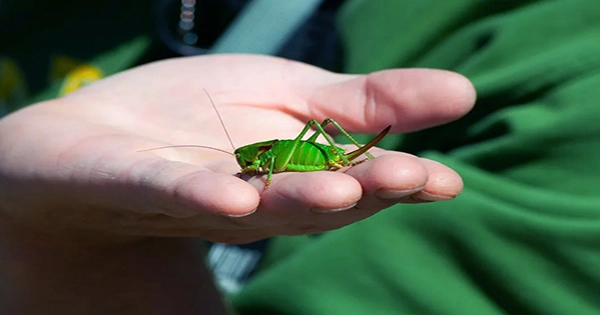Farmers in the American West have been plagued by vast swarms of cannibalistic Mormon crickets in recent years, and climate change threatens to make the issue worse. The Associated Press recently published an article that detailed Oregon’s most recent struggles against insect infestations. The insects are not actually crickets despite their name (or Mormons). Actually, the species is a shield-backed katydid.
When they wreaked havoc on the fields of Mormon settlers in Utah in the nineteenth century, it is when the prefix of their name first appeared. The insects eat grain crops voraciously, but if they go starving, they may turn cannibalistic. In 2017, the Arlington region had the biggest epidemic since the 1940s, which one rancher called “absolutely biblical.” According to local media accounts at the time, the roadways had accumulated a slimy layer of crushed crickets, which led to automobile accidents as a consequence of vehicles skidding on the greasy bug slick.
Following a rough epidemic in 2020, a particularly bad outbreak also occurred last year, causing insect damage to an estimated 10 million acres of rangeland in 18 Oregon counties. Oregon invested $5 million in a program to control the number of Mormon crickets and grasshoppers to combat the issue last year, and an additional $1.2 million was granted earlier this month.
The pesticide diflubenzuron, which prevents the production of chitin, the strong material that makes up the insect exoskeleton, is one of the approved treatments for bugs. Farmers will be able to obtain partial payment as part of the bug-busting plan if they use diflubenzuron to treat their crops after an infestation. However, it appears that the authorities are up against it. This region of North America is becoming more dry and drought-stricken as a result of climate change. While most bug species will be unhappy about this, these specific insects will prosper because of it.
Insects worldwide devour 5 to 20 percent of the world’s major grain crops, according to research from 2018, but the amount of production lost to insects will rise by up to 25 percent for every degree Celsius of global warming. According to their research, if climate change is allowed to take its course, insect-related maize losses in the US might rise by up to 40%.
“Temperate areas are now colder than is ideal for the majority of insects. However, as temperatures rise, these insect populations would expand more quickly, according to Scott Merrill, a University of Vermont researcher and co-author of the 2018 study. Additionally, they will require more food since insect metabolism is accelerated by rising temperatures. That combined is bad for agriculture. Even though Oregon continues to have issues with Mormon crickets, things might become worse before they get better.














